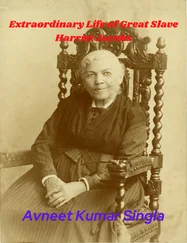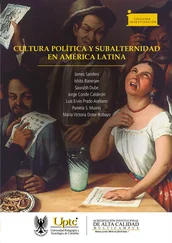“Thank you,” Harkályi answered, breathless. “Köszönöm szépen.”
“Nem Magyar?”
“Amerikai vagyok.”
“Igen, amerikai?”
“Igen.”
Another woman appeared with a blanket, which she wrapped over his shoulders. The liquor, a kind of homemade slivovitz, tasted surprisingly delicious; it prickled the lining of his chest, his stomach. He regained control of his breathing, and either from the booze or the embarrassment at his age and physical ineptitude, he felt his face glowing bright red. The women had further work to do and left him alone to watch the spectacle. The full buckets appeared from the foyer of a house and passed through the hands of twenty men, many of them half Harkályi’s age, and then were attached by their handles to a large hook and hoisted up using the pulley; the empty ones were tossed down to a man on the ground and fed back into the line. It was beautiful. Harkályi expected the men to break out in song. Every so often, the man closest to the roof would climb down and allow another to take over, to plunge his face into the smoke and to throw water at the flames, which neither subsided nor spread. A small carload of reporters and photographers arrived to document the men working in unison like an efficient, steaming machine. Harkályi made a mental note of the rhythm.
Sirens nipped at the edges of his hearing, still excellent despite the years, and soon some small degree of relief washed over the crowd. Exhaustion by then slowed even the younger men, yet they continued to pass the metal buckets back and forth. The sound of the fire brigade, which grew steadily louder, reminded him of the wartime air raid sirens, sounds once heard so frequently that they eventually lost all currency. The real danger came not from falling bombs or the buildings that collapsed under the weight of fire, but rather from the bitter Gentiles those bombs sent scurrying to join him underground. The mobs of desperate, anti-Semitic citizens were all-too-ready to denounce lifelong friends of the family, for only a tin of sardines as the reward. One ill-timed sneeze and young Lajos would have found himself unearthed and exiled — or worse.
There were fates more capricious and incomprehensible than exile.
The stone in his pocket, now collecting the sweat of his labors, was the only remaining totem of his childhood. Even Tibor had passed on; his brother, by some series of miracles, survived the war and the camps, but succumbed to a drunken gambler, newly destitute, swerving his way back to the city on the Atlantic City Expressway, and left Magda to Harkályi’s absentee care. The stone survived when everything else around him withered, and it traveled with him from Hungary to Czechoslovakia, Czechoslovakia to the U.S. Army hospital in Vienna, and then to London and, eventually, Philadelphia.
He will leave the stone here at the Tabac-Schul, where it can, like him, complete its journey. It had never, in all of these many years, felt so unbearably heavy.
8.
The sirens grew louder until three red trucks arrived, followed closely by a black sport utility vehicle full of rabbis and their bodyguards. Blue and red lights spun and danced around Harkályi, reflecting in the windows of the synagogue and the buildings facing it. What a scene! As the firemen emerged, the neighborhood men scurried to the safety of the sidewalk, where Harkályi climbed to his feet. Bottles of fresh wine appeared, and he drank heartily from every one that was passed. Photographers clamored for the attention of the sweating men. They did not recognize Harkályi, for which he was grateful. The crude, homemade alcohol burned his stomach, but helped to calm his nerves. The fire, although seemingly contained, continued to destroy the synagogue roof. The firemen uncoiled their hoses and dragged them toward the burning building. Reporters with television cameras positioned the rabbis with their backs to the synagogue and interviewed them with smoke rising behind them. One of them wept openly and the cameraman handed him a handkerchief.
The apartment doors remained open so that the men could go upstairs to see the effects of their labors from the upper floors. Harkályi followed them through the cramped foyer and up a series of stone steps. The climb was not difficult, now that he had regained his breath and found strength in the fresh Bikavér wine — the so-called bull’s blood — still being passed freely around. A woman stood in the threshold, the one who had brought him the blanket, which he handed back in return. “Csókolom,” he said to his hostess — I kiss your hand — and she giggled at the formality. The men did not remove their shoes, and they splashed mud across the wooden floors.
“You are an American, yes?” someone asked. It was the man who was next to him in line, the woman’s husband.
“Yes,” Harkályi said. “Do you speak English?”
“No, a little. But my wife.”
“Your Hungarian is very good,” she said. She was perhaps thirty years old, wearing a morning jacket over her long nightdress. She placed the blanket over her own shoulders.
“Look at the roof,” she said, taking him by the hand. The apartment was small, but beautifully furnished with antiques apparently inherited from several generations of ancestry, if such a thing were possible. A child slept on a divan, impervious to the commotion and conversation in the room, a corner of which served as their dining area. Books covered an entire wall and neighbors congregated in the tall windows, which opened to a balcony overlooking the synagogue. The firemen sprayed a material the color and consistency of fake snow.
To his surprise, the damage to the roof was minimal, perhaps only cosmetic.
“I don’t understand,” Harkályi said. The neighbors, less impressed, trickled slowly back to their own homes. “I saw the flames. It’s a miracle.”
The firemen now used water, at very high pressure, to wash away the foam. It looked as if it were raining, but only on one small parcel of one street.
“They do this every holiday and every election,” her husband said.
“You mean it was arson?” Harkályi asked. They looked at him blankly. “Someone did this on purpose, set the synagogue on fire?”
They smiled, almost amused, as if at a precocious child. “Of course,” the man said. “The skinheads.”
“This is how they celebrate Independence Day in Hungary,” his wife said.
The pálinka and wine began to make Harkályi dizzy. His knees shook. He wanted very much to sit down, but the man’s wife yawned and pulled the blanket more closely around herself.
“It’s late — I must go,” Harkályi said. “Thank you for the wine.”
“You’re welcome,” the young man told him, leading him to the door. “Enjoy your holiday.”
The stairwell was frigid and he was ready, almost, to return to his hotel. Outside, the firemen were putting away their gear and the crowds had gone to bed. He stared in awe at the pristine roof, which he so recently saw destroyed before his very eyes. It was practically unscathed. He had witnessed a miracle. For a moment, only a flashing moment that he would promptly regret, he considered throwing his stone at one of the elaborate windows of the synagogue, simply because he expected it would bounce off. The stunning beauty of the building was made even more profound, to him, by its permanence, as ineradicable as the Earth itself.
Freezing halfway to his death, he allowed the stone to remain in his pocket while he walked slowly back to the körút, sustained only by the alcohol in his blood, to hail a cab. A gregarious and hirsute driver engaged him in a lengthy conversation he didn’t understand, or even hear above the Gypsy music rattling in the speakers behind his seat. “Igen,” Harkályi told him. “Tudom, tudom.” I know, I know.
Читать дальше












